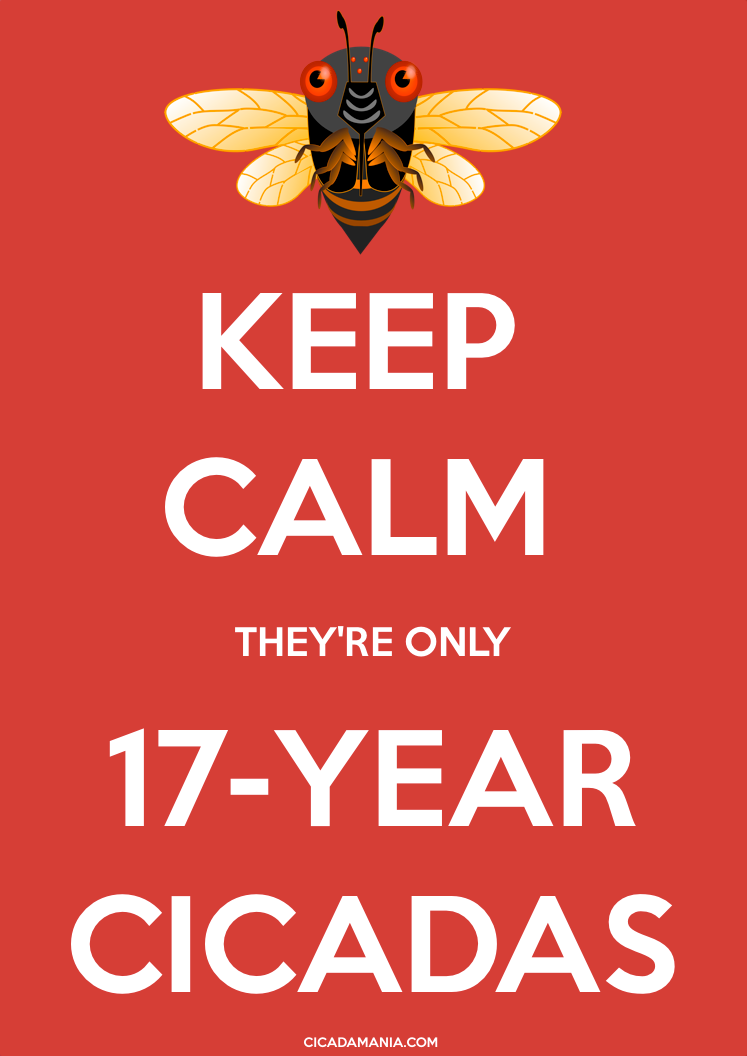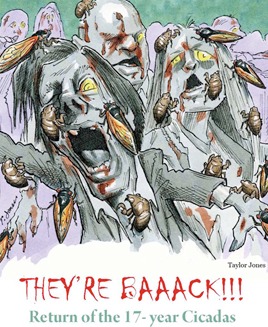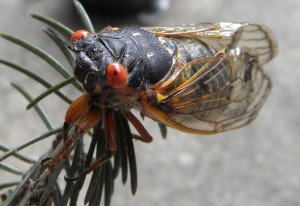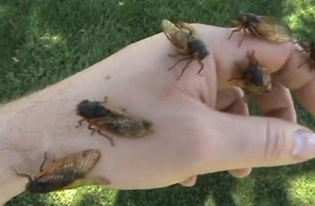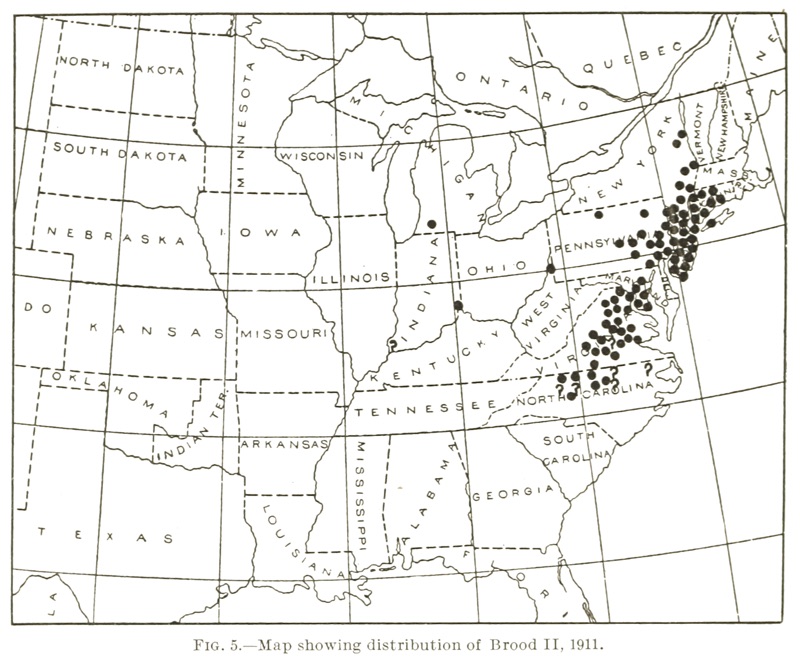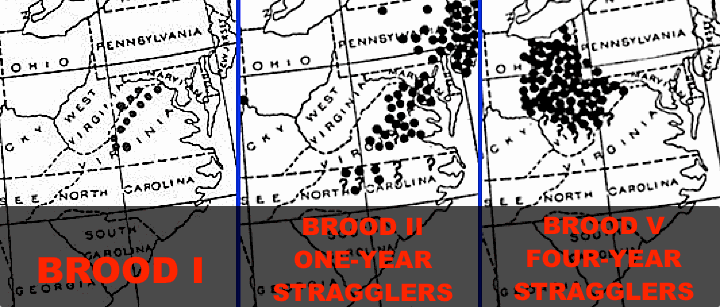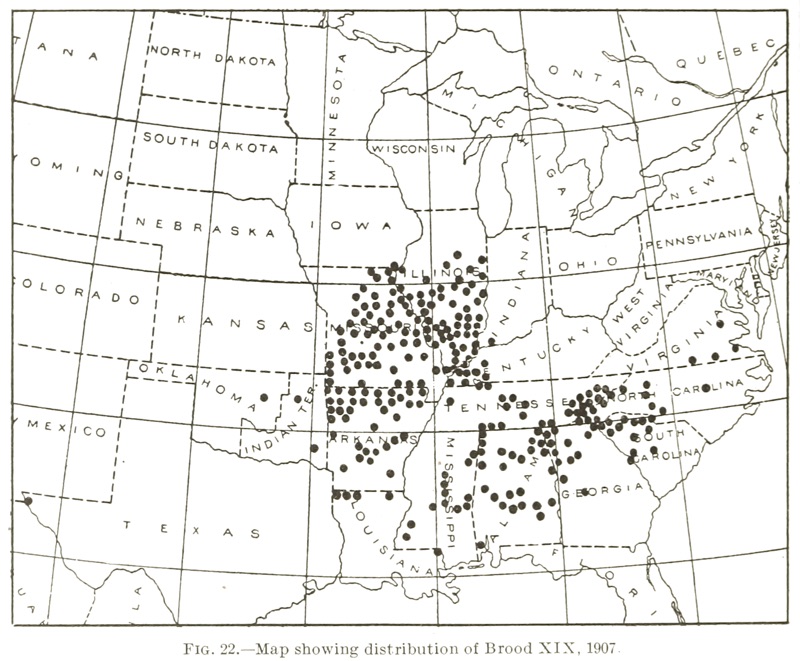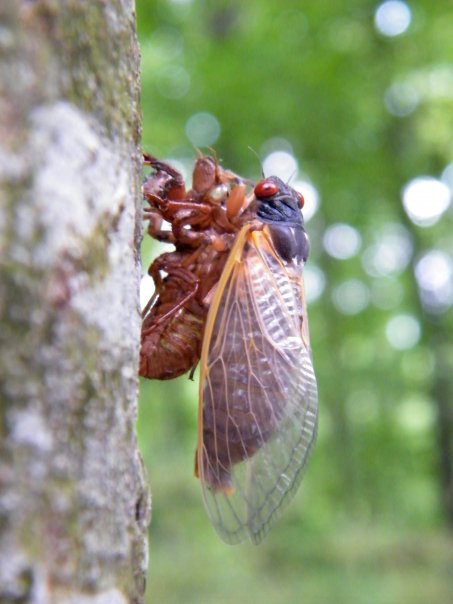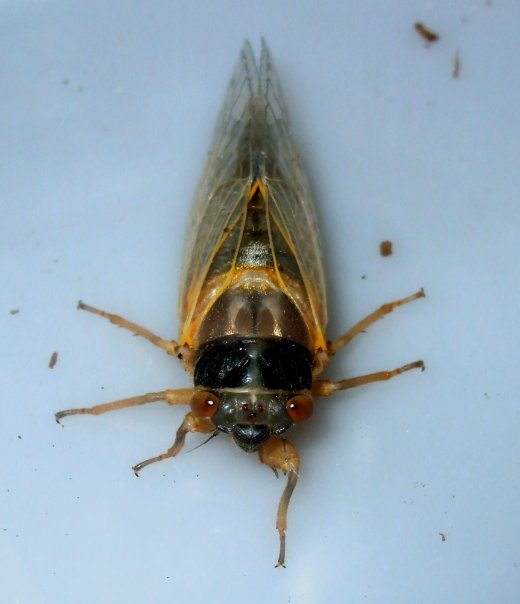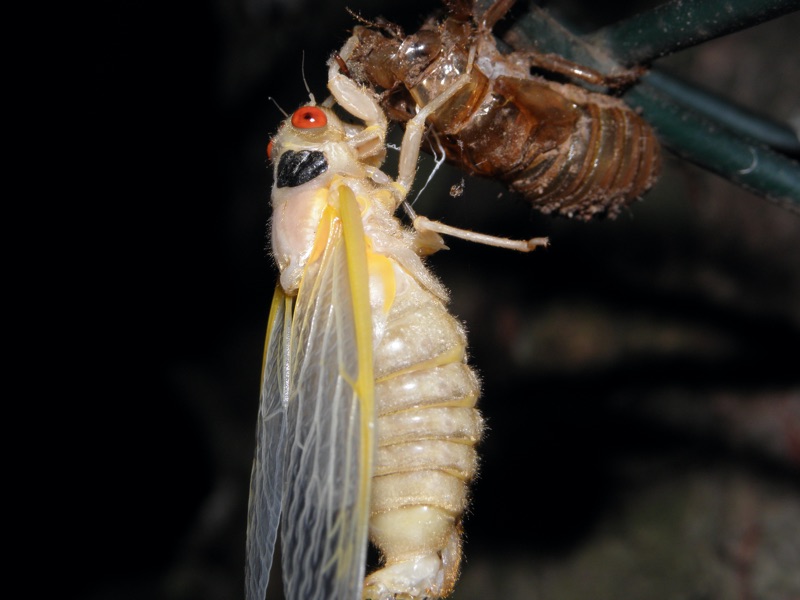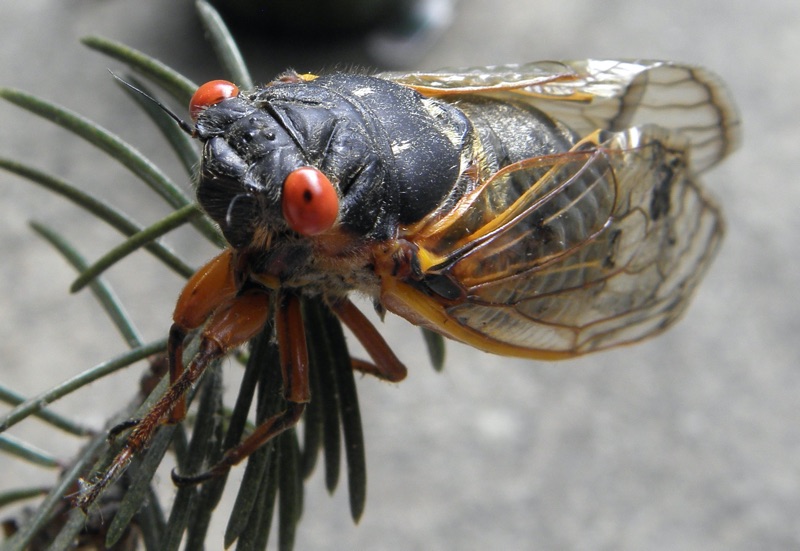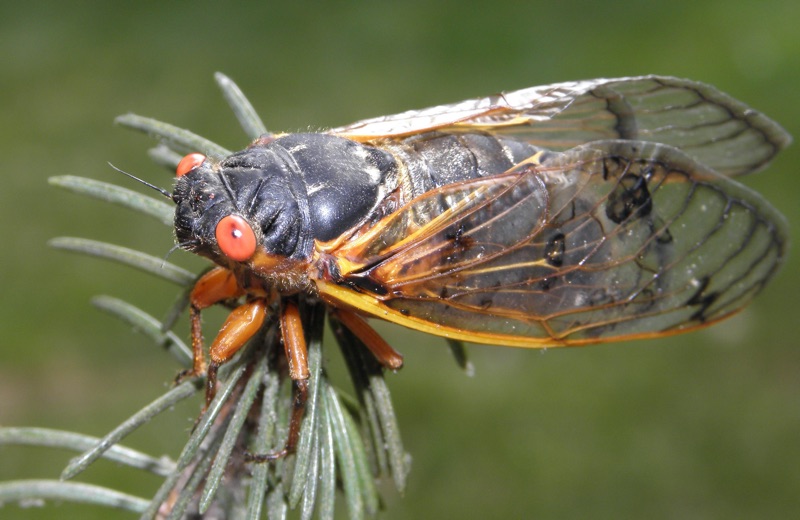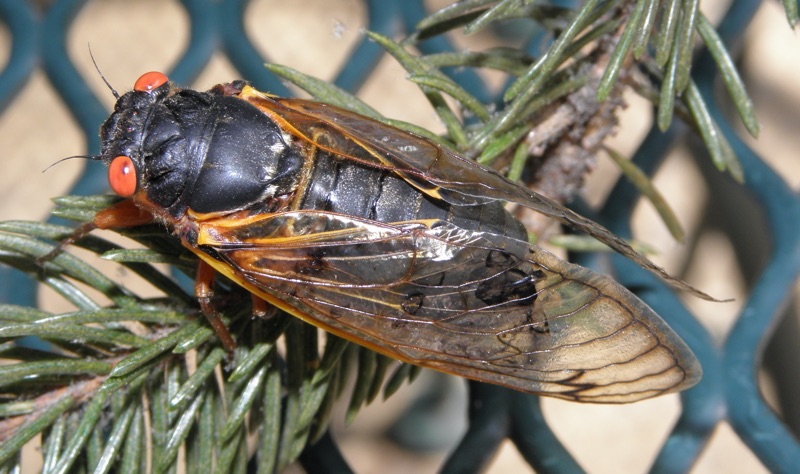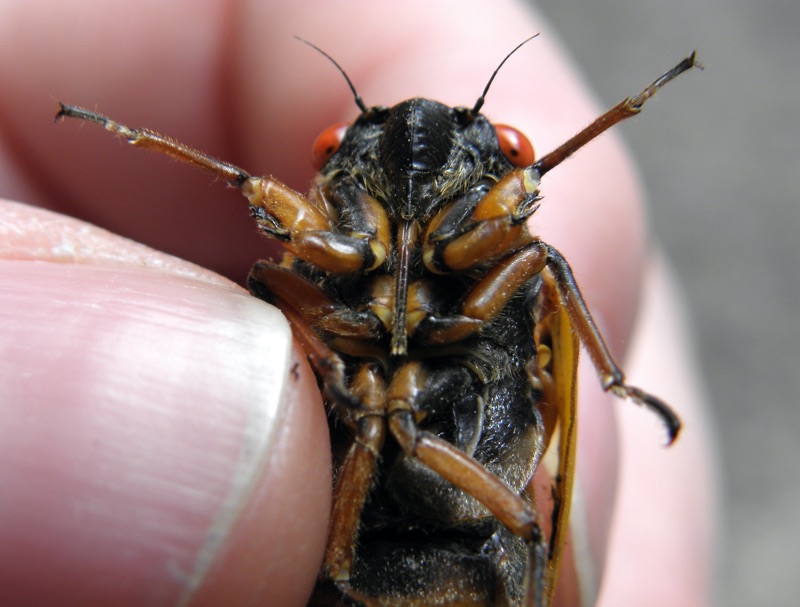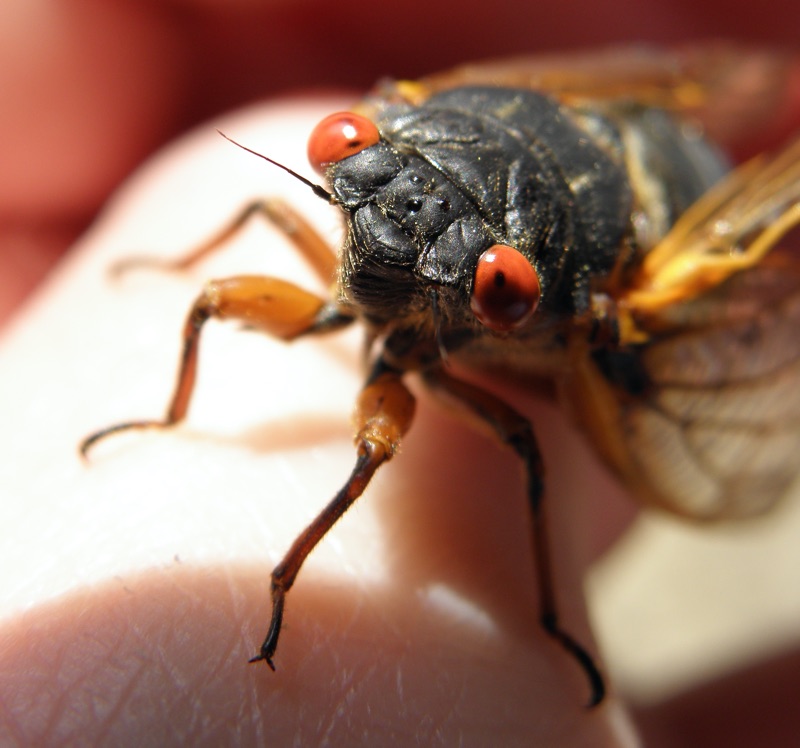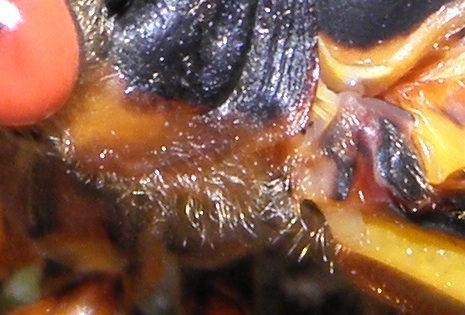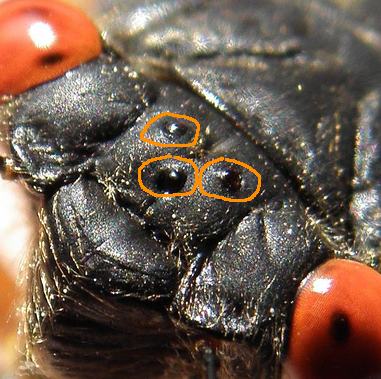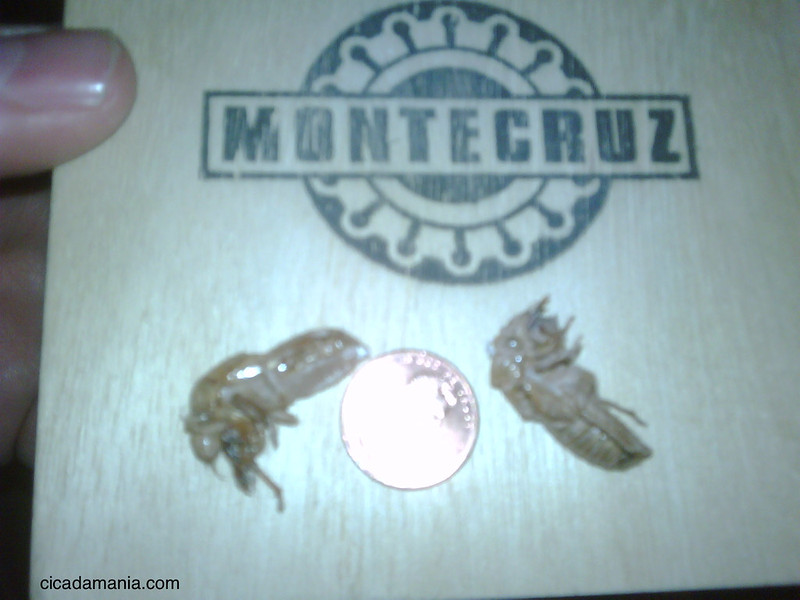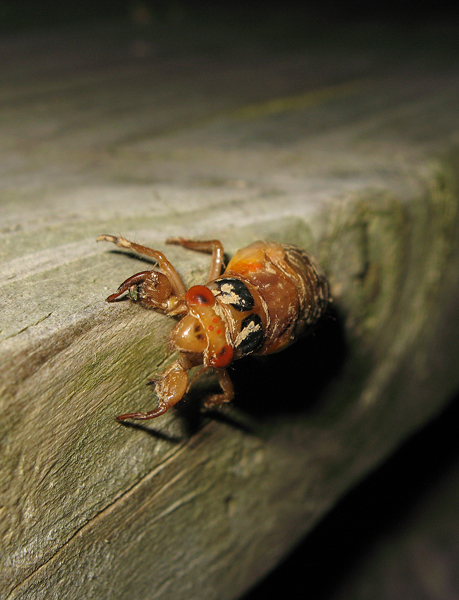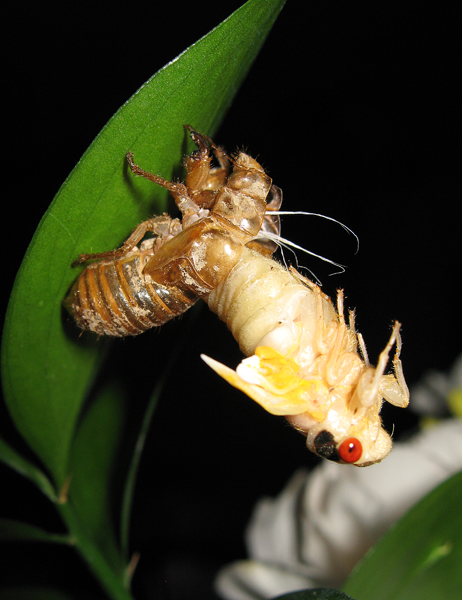These are the 17 most interesting 17-year cicada facts (IMHO). All these facts apply to 13-year cicadas as well.
#1. Names for cicadas
People call these cicadas “locusts” but they are not true locusts — real locusts look like grasshoppers. The phrase “17-year cicada” indicates that they arrive every 17 years. The name “periodical cicadas” indicates that they arrive periodically and not each and every year. The scientific name for the Genus of these cicadas is Magicicada, and there are 3 types of 17 year Magicicadas: Magicicada septendecim, Magicicada cassini and Magicicada septendecula.
This is a true locust:
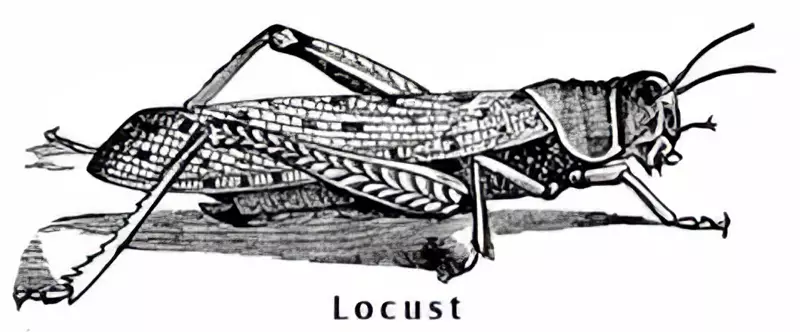
#2. There are 13-year cicadas too
There are 13-year cicadas too! There are four species of 13-year cicadas: Magicicada tredecim, Magicicada neotredecim, Magicicada tredecassini, and Magicicada tredecula. Broods XIX, XXII and XXIII feature these cicadas.
Here’s a video that will help you identify the various species.
#3. Many Eye Colors
Most 17-Year Cicadas have red eyes, but they can also have white, gray, blue , or multi-colored eyes.
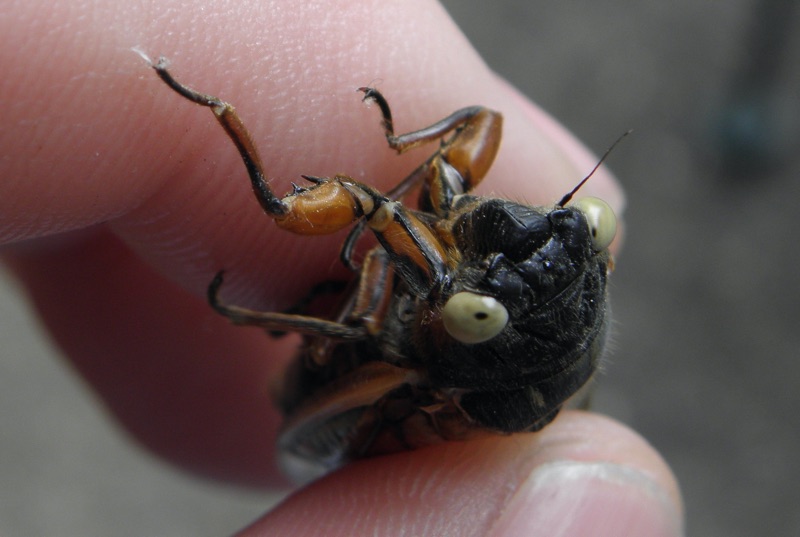
#4. Fungus
The Massospora cicadina fungus infects Magicicadas, destroying their abdomen and ability to reproduce. Often, their entire abdomen will fall off. The cicadas spread the fungus throughout their local colony via mating. The Massospora fungus is a cicada STD!
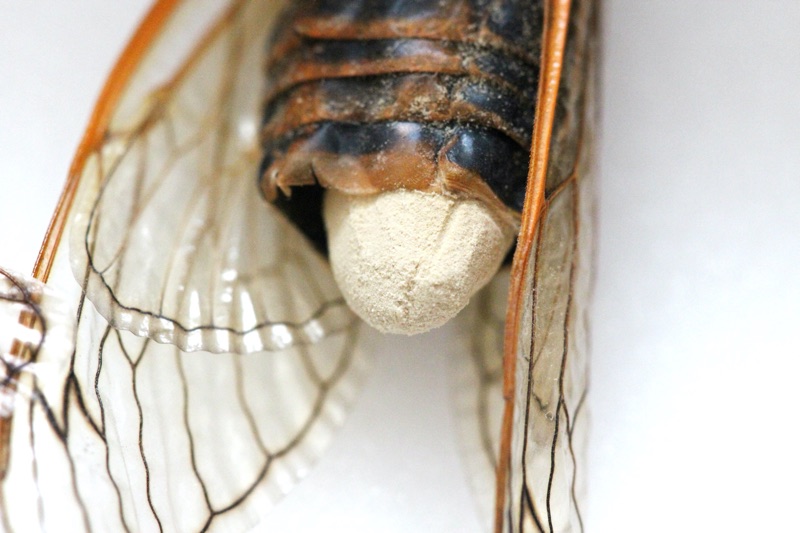
#5. They will land on you if you are using a power tool or lawn mower
Cicadas think the sounds made by power tools and lawn maintenance equipment are made by cicadas. They get confused and will land on the people using the equipment! Pro-tip: cut your lawn in the early morning or near dusk when the cicadas are less active.

#6. Cicadas have five eyes
Cicadas have two, obvious, large, compound eyes, and three ocelli. Ocelli are three jewel-like eyes situated between the two main, compound eyes of a cicada. We believe ocelli are used to detect light and darkness. Ocelli means little eyes in Latin.
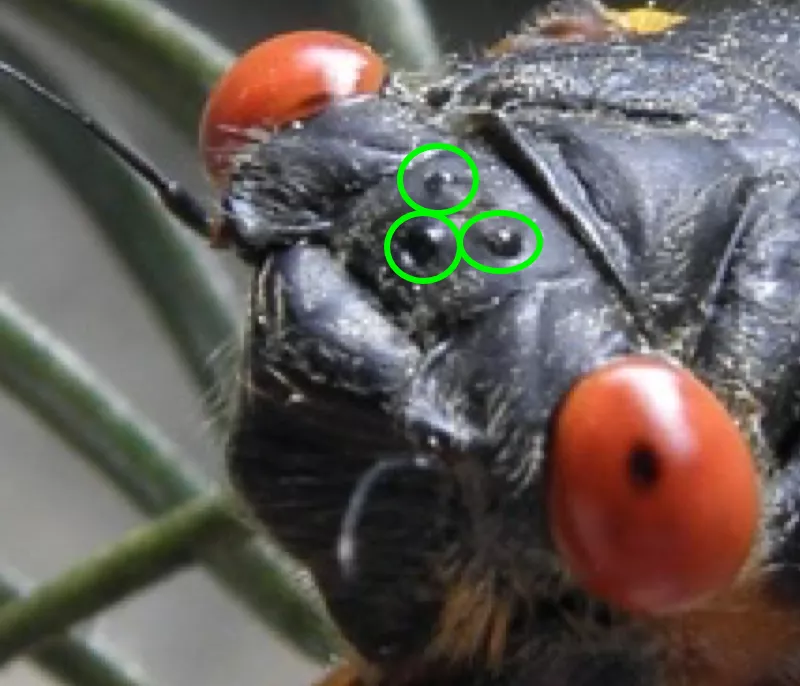
#7. People eat them
People eat them. You can barbecue it, boil it, broil it, bake it, sauté it. There, uh, cicada kabobs, cicada creole, cicada gumbo, panfried, deep fried, stir fried. There’s pineapple cicada, lemon cicada, coconut cicada, pepper cicada, cicada soup, cicada stew, cicada salad, cicada and potatoes, cicada burger, cicada pizza, cicada sandwich… that’s, that’s about it.

#8. Animals eat them
All wild animals and domestic pets will eat them. Dogs will gorge themselves until they choke. Squirrels will eat them like corn on the cob. Wild turkeys will grow fat and juicy on the cicada feast. Fish go crazy for them too — you can use them as bait, or use lures that mimic them.
#9. Cicadas “eat” tree fluids
Cicadas don’t eat solid foods like leaves or fruits. Instead they use their slender, straw-like mouth parts to drink tree fluids.
#10. Cicadas pee
Yes cicadas pee, so wear a hat when walking under trees if that sort of thing bothers you. Cicadas drink tree fluids and then expel the excess fluid they do now need. People call it “honeydew” or “cicada rain”.
#11. How cicadas make their sound
Only male cicadas make the loud sound they are famous for. Males have organs on their abdomen called tymbals. Muscles pop the tymbals in and out, which creates the sound we hear. Males make different calls for different reasons, and each species has a unique sound. Females can make sound too: they flick their wings to respond to males.
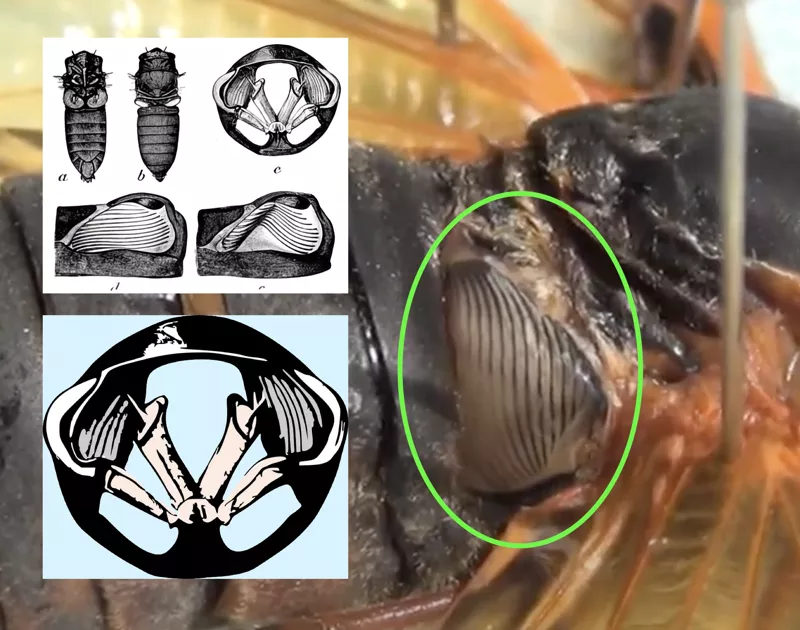
#12. There are billions of them
There are literally billions, if not trillions, of 17-year cicadas. Why? One theory suggests that a large number of cicadas overwhelms predators, so predators are never able to eat them all and cicadas, and many always survive to mate. This is a survival strategy called “predator satiation”.
#13. They damage wimpy trees
The biggest concern about 17-year cicadas is their potential to damage young trees. The truth is they will damage limbs on the wimpiest of trees, so if you have weak, pathetic, wimpy ornamental trees in your yard you should consider placing netting around the trees if the cicadas visit your yard. Also, you can try hosing them off with water, placing insect barrier tape around the trunk of the trees, or picking them off like grapes! Or, plant strong, beefy American trees — that’s what I would do. Cicadas actually benefit the health of trees by aerating the soil around the roots and trimming the weak or damaged limbs.
#14. Stragglers
Periodical cicadas that emerge in years before they are supposed to emerge are called stragglers.
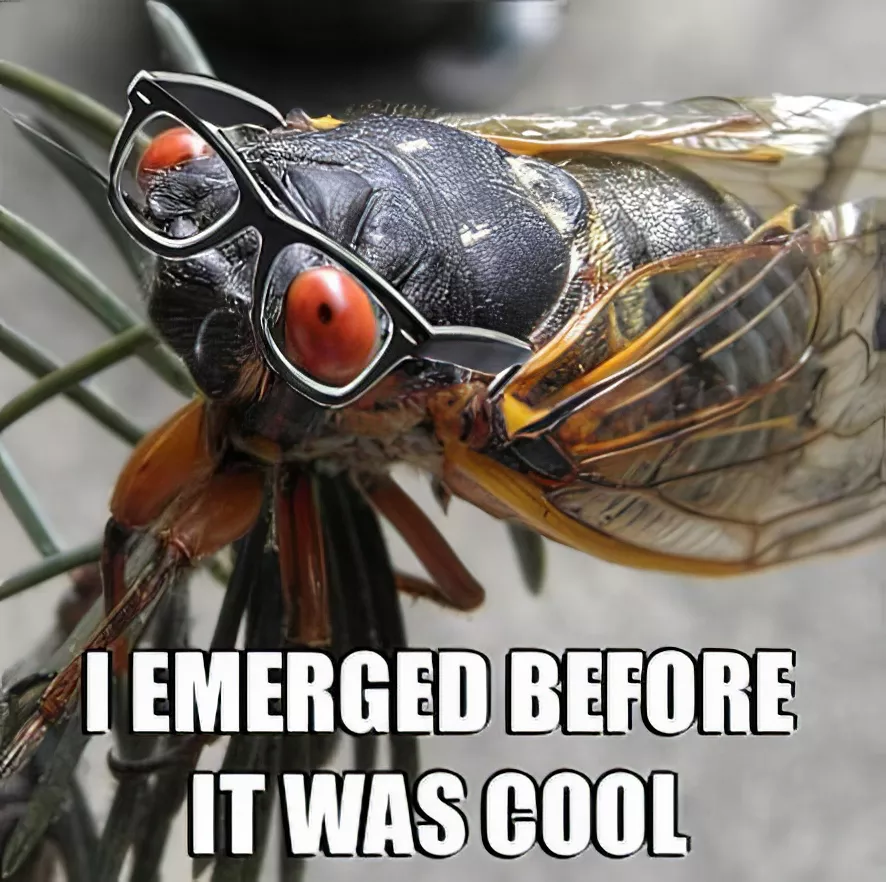
#15. 17 and 13 are prime numbers
Scientist speculate that one reason why these cicadas emerge in 17 or 13 year cycles is because those are prime numbers. The fact that 13 & 17 are relatively large* prime numbers makes it difficult for predators to synchronize with them. (*Relative to the average lifespan of an animal.) Annual cicadas (cicadas that arrive every year) often have wasps specialized to prey on them; periodical cicadas have no such wasp because no wasp could evolve to synch with it.
#16. They use their color to warm up
Cicadas need to be warm to sing and fly around. Their dark skin absorbs the heat of the sun, which helps to warm them up.
#17. 17-year and 13-year broods co-emerge every 221 years
Cicada Broods usually don’t overlap geographically, and it is very rare when they emerge in the same year. In 2024, Brood XIX and Brood XIII are both emerging.
###
If you have 18 minutes to spare, watch the video version of this article.








